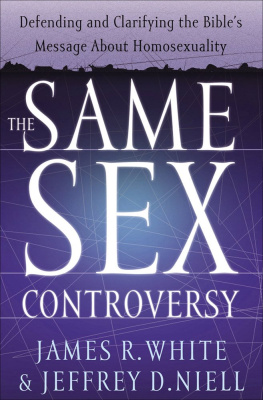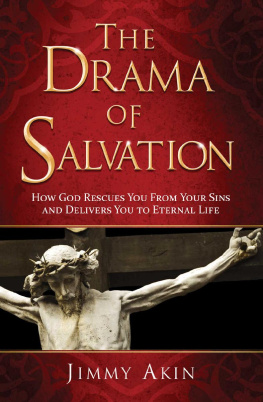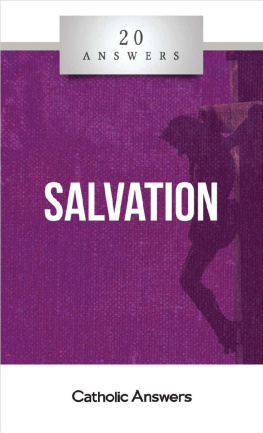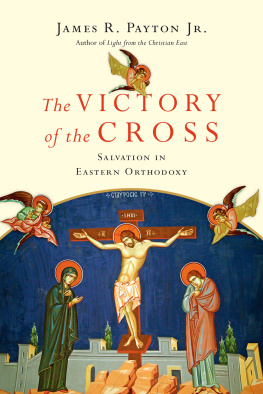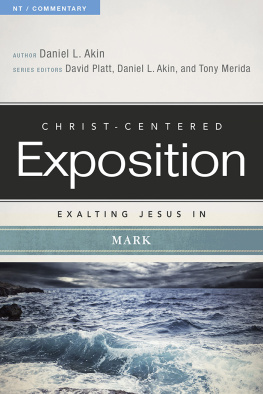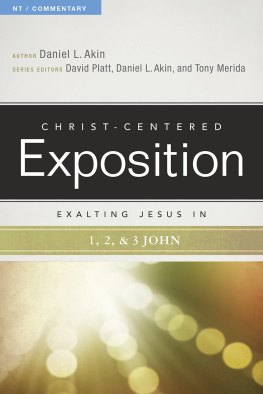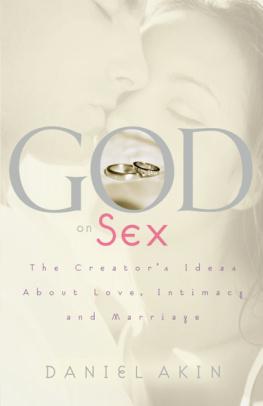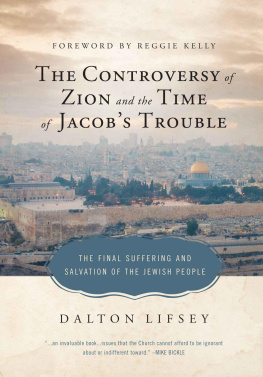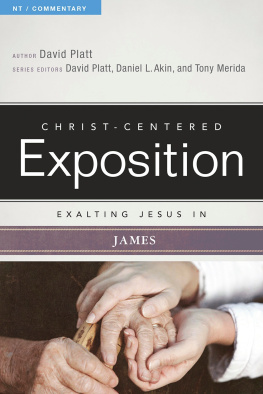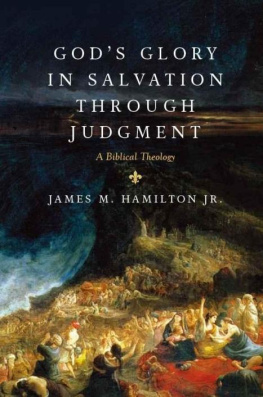James Akin - The Salvation Controversy
Here you can read online James Akin - The Salvation Controversy full text of the book (entire story) in english for free. Download pdf and epub, get meaning, cover and reviews about this ebook. year: 2012, publisher: Catholic Answers, genre: Religion. Description of the work, (preface) as well as reviews are available. Best literature library LitArk.com created for fans of good reading and offers a wide selection of genres:
Romance novel
Science fiction
Adventure
Detective
Science
History
Home and family
Prose
Art
Politics
Computer
Non-fiction
Religion
Business
Children
Humor
Choose a favorite category and find really read worthwhile books. Enjoy immersion in the world of imagination, feel the emotions of the characters or learn something new for yourself, make an fascinating discovery.

- Book:The Salvation Controversy
- Author:
- Publisher:Catholic Answers
- Genre:
- Year:2012
- Rating:4 / 5
- Favourites:Add to favourites
- Your mark:
- 80
- 1
- 2
- 3
- 4
- 5
The Salvation Controversy: summary, description and annotation
We offer to read an annotation, description, summary or preface (depends on what the author of the book "The Salvation Controversy" wrote himself). If you haven't found the necessary information about the book — write in the comments, we will try to find it.
The Salvation Controversy — read online for free the complete book (whole text) full work
Below is the text of the book, divided by pages. System saving the place of the last page read, allows you to conveniently read the book "The Salvation Controversy" online for free, without having to search again every time where you left off. Put a bookmark, and you can go to the page where you finished reading at any time.
Font size:
Interval:
Bookmark:
The Salvation Controversy
James Akin
C ATHOLIC
A NSWERS
PRESS
San Diego
2001
2001 Catholic Answers, Inc.
Unless otherwise noted, all Scripture quotations are from the Revised Standard Version: Catholic Edition, 1965-1966 by Division of Christian Education of the National Council of the Churches of Christ in the United States of America.
All rights reserved. Except for quotations, no part of this book may be reproduced or transmitted in any form or by any means, electronic or mechanical, including photocopying, recording, uploading to the Internet, or by any information storage and retrieval system, without written permission from the publisher.
Published by Catholic Answers, Inc.
2020 Gillespie Way
El Cajon, California 92020
888-291-8000 orders
619-387-0042 fax
www.catholic.com
Cover by Mary Lou Morreal
Printed in the United States of America
ISBN 978-1-933919-86-7
Good crystal gives off an unmistakable sound. If you strike it lightly with your forefinger, youll hear the delicate ping that indicates: This is genuine; this is the real thing. But if the glass in your hand fails to make the telltale sound, you know that youre holding, at best, a glittering fake.
Something analogous happens in the world of the intellect. There are times when you just know, as if by instinct, and often before youre able to say exactly why, that an argument youre hearing is fatally flawed; it gives off something like the hollow thunk of cheap glass. But then there are those rare and precious times when you read a book or an article andping!theres no mistaking: This is the real thing. At the banquet table of apologetics, James Akins The Salvation Controversy is the finest of fine crystal.
Questions relating to salvationespecially faith vs. works, but also penance, purgatory, indulgences, and free cooperation with Gods gracehave been neuralgic points in the dialogue between Catholics and Protestants. Serious people on every side have reasonably wondered whether dialogue can accomplish very much if anything, for what they have seen trumpeted as the fruit of ecumenical dialogue too often has involved falsification and betrayal of their respective traditions. This book should lay all such doubts to rest.
Mr. Akin knows and respects the Protestant tradition in which he was raised and the Catholicism he has come to embrace. He is not about to falsify either or to pretend that crucial differences do not exist. But he is also unwilling to allow theological slogans (like faith alone) to distract us from significant points of agreement or allow verbal formulae (like TULIP) to ease away the tense paradoxes of faith and freedom. His method is to follow Scripture and Tradition wherever they lead, and he is formidably equipped for the task with honesty, clarity of mind, and a superabundance of logical rigor.
In apologetical circles, Mr. Akin was long ago nicknamed TheTerminator precisely because of his logical skills and the remorseless way he can wield them. Those skills are on frequent display in The Salvation Controversy. Though the sharp blade of dialectic is always tempered with charity, it still cuts straight and deep. So, readers, be warned: Some cherished theological nostrums may be reduced to a mass of tatters by the time Mr. Akin is finished with them.
Here I include myself among the bereaved. For many years Itoyed with a certain interpretation of the meaning in Romans ofworks. Then I read Mr. Akins chapter on Faith, Works, andBoasting. Few things in philosophy or theology deserve to be called definitive, but the argument of that chapter is surely a plausible candidate. At the very least it is a powerfully compelling case for one view of Pauline soteriology, and it demands a serious response from anyone who might hope to hold a different view.
That, in fact, could be said of this book as a whole. It is a serious work by a serious and supremely gifted apologist on a topic of central concern for everyone. If it elicits the response it deserves, then all of us, whatever our confessional commitments, will at least be clearer about what really does divide us. And what does not. Some notions, after all, deserve to be terminated.
Ronald K. Tacelli, S.J.
Boston College
Shall I begin by confessing that I am not now, nor do I ever expect to become, a Scripture scholar? I am not even a convert, for heavens sake. What I am, alas, is one of those countless cradle Catholics who grew up never reading the Bible, while serenely disdaining those who read little else. (Since joining a theology department where Scott Hahn holds forth, I have had, of course, to make certain adjustments.)
Under the circumstances, I am probably the least qualified to pass judgment on this book, except to say that its thesis, which Mr. Akin lays out with meticulous and unremitting precision, wholly inspires one to want to become ever more acquainted with Gods word. That is finally the point, after all, of mans encounter with the sacred text: That we summon the wit sufficient to tease out the meaning God intended words to have, making possible, thereby, a living confrontation with God himself. The intolerable wrestle with words and meanings, to recall T. S. Eliots expressive image from Four Quartets. So I am very grateful to James Akin for such formidable resources of scholarship. Thanks to their adroit deployment, the cause of discipleship will likewise be strengthened and augmented.
And more. There is a line in Chestertons Whats Wrong with the World in which he reminds us that the sincere controversialist is above all things a good listener. James Akin is a superb listener, and, having heard the arguments of Protestant Christianity (indeed, at one time they were his own), he is particularly situated to recognize and appreciate the peculiar rhythms and intonations of the language that Protestants use. It is a rare art and one which its greatest exemplar, St. Thomas Aquinas, exercised with singular dialectical skill. If one is to disarm ones adversary, said Thomas, one has got to know his arguments better even than he does.
It is, I believe, the best tribute I can pay to this book, thatit manages so well to be both entirely sympathetic to theProtestant side and yet at the same time to leave it in ruins.
Regis Martin, S.T.D.
Franciscan University of Steubenville
On Words and Word-Fights
Over the last few centuries, a large number of books have beenwritten on the subject of salvation. Most of them share thesecharacteristics: (1) They focus exclusively on the subject ofeternal salvation; (2) they focus in particular on thedoctrine of justification; (3) they often ignore, in theinterests of systematic theology, the way in which the Bibleitself uses language; (4) they are written in a polemical, oftenhostile manner; and (5) due to the authors not understanding theway other people express themselves, they mistakenly criticizeviews over which there is no disagreement in substance.
I want this book to be different. While it will discuss eternalsalvation, I intend to show that the concept of salvation inthe Bible is much broader than that. While this book discussesthe doctrine of justification, this will not dominate the book tothe detriment of other biblical themes relating to salvation. Whilethis book addresses concerns of systematic theology, it focusessignificantly on the way the Bible talks aboutsalvationthe kind of language Scripture uses whenaddressing this subject. While this book takes a very definiteposition on many matters, it is not meant to be polemical orhostile toward those with other beliefs. Finally, while this bookis critical of positions I believe to be in error, very greatlengths are taken to understand the ways in which differentgroups of Christians express themselves on the subject of salvation.
Font size:
Interval:
Bookmark:
Similar books «The Salvation Controversy»
Look at similar books to The Salvation Controversy. We have selected literature similar in name and meaning in the hope of providing readers with more options to find new, interesting, not yet read works.
Discussion, reviews of the book The Salvation Controversy and just readers' own opinions. Leave your comments, write what you think about the work, its meaning or the main characters. Specify what exactly you liked and what you didn't like, and why you think so.

